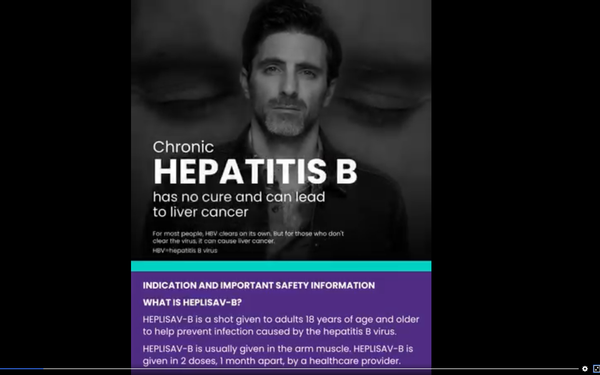
Not only is the hepatitis B virus responsible for 54% of
liver cancer cases, but the Centers for Disease Control and Prevention (CDC) recommends that all adults aged 19-59 get vaccinated against it, as well as older adults with risk factors.
But
immunization rates are low, with an estimated 130 million Americans remaining unvaccinated.
That leaves a huge market open for Dynavax Technologies, whose sole product -- seven-year-old
Heplisav-B -- has become one of the leading hepatitis B vaccines. Its main competitor: GSK’s 36-year-old Engerix-B.
But Dynavax has obstacles, and not from the federal government.
It’s true that, responding to a direct question from Republican Senator and doctor Bill Cassidy during January confirmation hearings, U.S. Secretary of Health & Human Services Robert F.
Kennedy Jr. refused to rule out the hepatitis B vaccine as a cause of autism in children.
advertisement
advertisement
Dynavax’s vaccine, though, is for adults only, so no worries there.
More concerning is a
dissident venture capital group, Deep Track Capital, which is engaged in a proxy fight to take over Dynavax’s board of directors, charging the company with a “high-risk strategy and poor
allocation of capital.” Dynavax sought to dispel that during a Tuesday afternoon earnings call, when it highlighted its pipeline of planned vaccines against shingles, plaque and, newly
announced, pandemic flu and Lyme disease.
Dynavax’s biggest obstacle, though, may be adult Americans themselves. Last week, the company announced results of a Harris Poll showing 54% of
them unconcerned about hepatitis B.
Amid all these negatives, Dynavax on Tuesday still reported record revenues for Hepislav-B of $65 million for Q1, a 36% year-over-year increase. It also
reaffirmed full year guidance of $305 million to $325 million in revenues, though now expected at the high end of that.
Market share for the vaccine rose from 41% to 43% YoY, with volume
increasing some 70% in retail pharmacies alone, Dynavax chief commercial officer Donn Casale told analysts. “We expect to see similar year-over-year market share gains throughout the remainder
of 2025, in line with our long-term expectations,” he said, as retail will continue to be the “fastest growing segment.”
Casale noted that Dynavax’s “strong
momentum” has already carried into the second quarter, and “we anticipate additional upside during Hepatitis Awareness Month in May as we activate targeted campaigns and collaborations to
further accelerate hepatitis B vaccination.”
Those activities include digital advertising through co-developed campaigns with such retailers as CVS, Walgreens, Walmart, Kroger and
Albertsons, Dynavax tells Marketing Daily. Ads are running on social media, in-store TV screens, radio, and more.
In a statement, Dynavax chief medical officer Rob Janssen pointed to
results of the Harris Poll survey underscoring “the need for further education about hepatitis-B, and information about how to prevent it."
One of those educational efforts will be a
LinkedIn Live event on May 27, in which a panel of experts from the hepatitis B community will discuss “the survey results, the gaps in education, and ways to accelerate conversations about
prevention through vaccination,” Dynavax said.
The Harris Poll report not only showed 54% of respondents as unconcerned about getting hepatitis B, but cited these three top reasons for
that opinion: “they do not believe they are at risk, they have not experienced symptoms of the virus, or their healthcare provider has not discussed the virus with them. “
The
survey of more than 4,000 U.S. adults was conducted online during this past fall and spring.